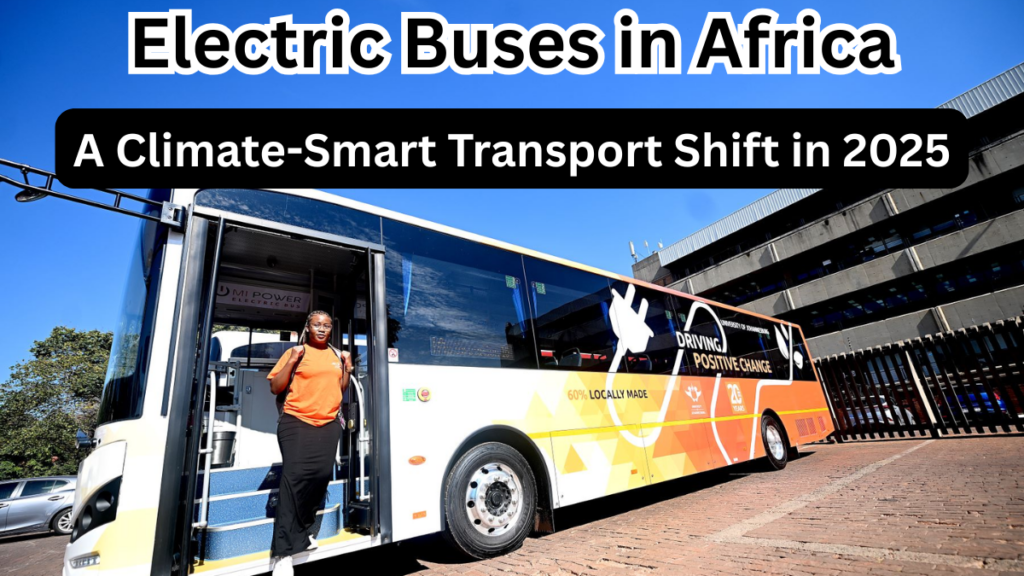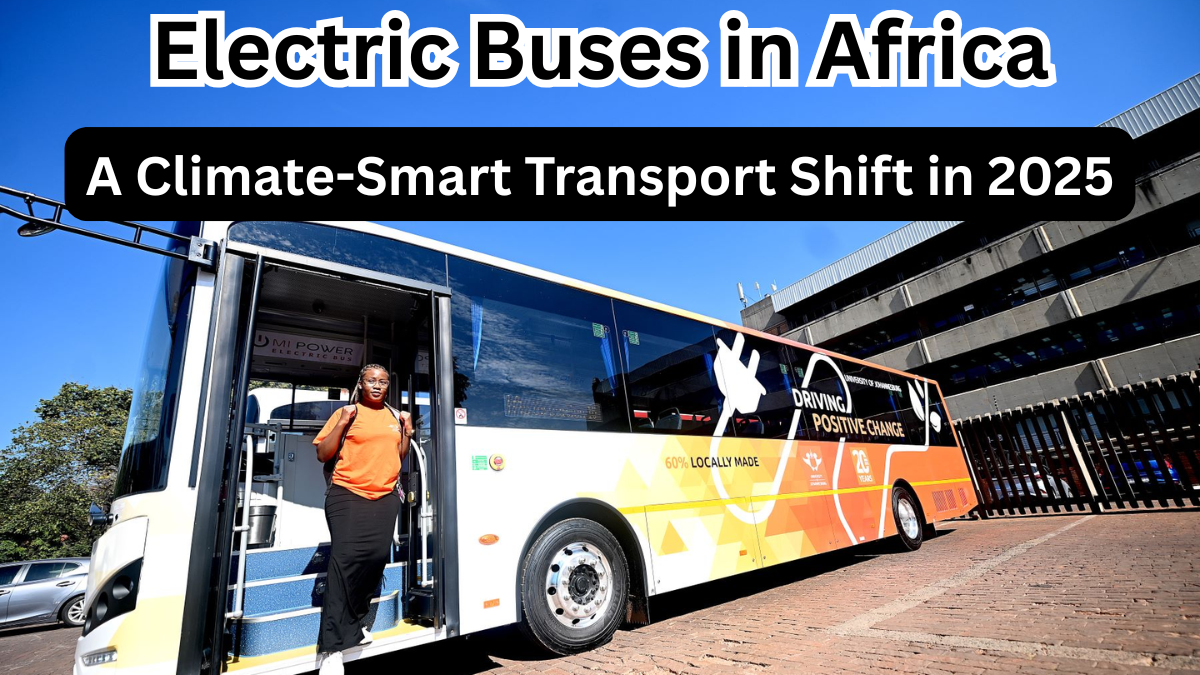As Africa grapples with rising fuel costs, urban air pollution, and climate change, the continent is now steering toward a climate-smart transport future. In 2025, one of the most promising developments in this space is the rapid adoption of electric buses in Africa.
From Nairobi to Cape Town, cities are beginning to invest in eco-friendly, electric public transportation—ushering in a greener, cleaner era.

Why Electric Buses Are Making Headlines in Africa
Electric buses are no longer just a concept for the future. In 2025, they’ve become a necessity for African cities aiming to reduce emissions and modernize their public transport systems.
Key reasons for this shift:
-
Rising fuel costs: Diesel and petrol prices are unstable and high.
-
Urban air pollution: Many cities face severe air quality issues.
-
Climate commitments: African nations are signing up for climate-resilient goals.
-
Operational efficiency: Electric buses have fewer moving parts and lower maintenance.
Leading African Cities Going Electric
Here’s a quick look at the cities and countries leading the electric buses Africa movement:
| Country | City | Initiative Highlights |
|---|---|---|
| Kenya | Nairobi | BasiGo launched 100+ electric buses with Safaricom |
| South Africa | Cape Town | Golden Arrow trials electric fleets in 2025 |
| Rwanda | Kigali | Government targets fully electric bus system by 2030 |
| Nigeria | Lagos | Plans to introduce 200 electric buses by 2025 |
| Egypt | Cairo | Collaboration with Chinese firms for e-bus rollout |
The Benefits of Electric Buses for Africa
Electric buses aren’t just about sustainability—they also offer real economic and social value for African nations.
Advantages of embracing electric buses in Africa:
-
Lower running costs compared to diesel buses
-
Zero tailpipe emissions, which means cleaner urban air
-
Quieter operation, reducing noise pollution
-
Job creation in the green mobility sector
-
Boosts energy independence by reducing reliance on fuel imports
Challenges to Overcome
While the future is bright, several challenges must be tackled for widespread adoption:
-
Infrastructure gaps: Not enough charging stations yet.
-
Upfront investment: Electric buses cost more initially.
-
Limited technical expertise: Skilled labor is still developing.
-
Policy barriers: Need for strong government incentives.
How Electric Buses Support Climate-Smart Transport
The integration of electric buses into public fleets aligns perfectly with Africa’s long-term sustainability goals.
| Climate Goal | How Electric Buses Help |
|---|---|
| Reduce greenhouse gas emissions | No tailpipe emissions during operation |
| Improve urban health | Cleaner air quality and reduced noise levels |
| Strengthen energy security | Shift away from imported fossil fuels |
| Support sustainable urban planning | Enable cleaner, integrated transport systems |
What 2025 Looks Like for Africa’s E-Mobility
As we move through 2025, it’s clear that electric buses in Africa are no longer a pilot project—they’re becoming the norm.
What to expect:
-
Expansion of local manufacturing units
-
Regional policies encouraging EV imports and tax breaks
-
More public-private partnerships for e-bus deployment
-
Integration with solar and renewable energy grids
FAQs
Q1. Why are electric buses considered part of climate-smart transport in Africa?
Electric buses drastically reduce emissions, improve air quality, and align with Africa’s efforts to fight climate change, making them a cornerstone of climate-smart transport systems.
Q2. Are electric buses in Africa more expensive than diesel buses?
Yes, upfront costs are higher, but long-term savings on fuel and maintenance often make them more economical.
Q3. Which countries in Africa are leading the way in electric bus adoption?
Kenya, South Africa, Rwanda, Nigeria, and Egypt are some of the frontrunners in deploying electric buses across their major cities.
Q4. What is being done to address the lack of charging infrastructure?
Governments and private companies are investing in EV charging stations, with several solar-powered and grid-connected facilities being built across urban centers.
Click here to learn more
Sachin is a dedicated writer specializing in education, career, and recruitment topics, delivering clear and actionable insights to empower readers.
